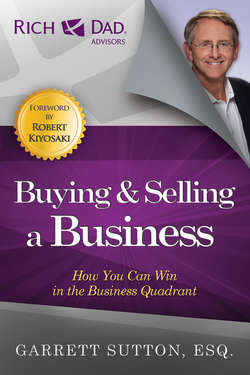Читать книгу Buying and Selling a Business - Garrett Sutton - Страница 11
На сайте Литреса книга снята с продажи.
Why Sell (vs. Hang On)
ОглавлениеThe best time to sell is when the economy and the industry are in good shape. While sellers have little or no control over these factors, they can keep their companies in prime selling condition in order to take advantage of unforeseen opportunities. A well-run business is a valuable commodity in any market. Knowing economic and industry norms and how the company stacks up against them will help a seller set the best price should he or she decide to sell.
Sometimes events completely out of a seller’s sphere of influence pop up and motivate a sale. Some of these include:
1. Change in the competition (such as when a large company decides to move into the arena and is looking for a company to buy)
2. Death of a partner or a majority shareholder (the owner may have to sell to pay off other partners or to divide up the deceased’s estate)
3. The owner’s own heirs don’t want the company (or are not competent to run it)
4. Unexpected changes in finances (such as from divorce or medical emergencies)
5. Changes in the rules (such as zoning changes or new laws)
Sometimes events completely within the seller’s sphere of influence are prompting the sale. Sellers must understand their motivations to avoid making a mistake.
Burnout is a common sale motivator. But burnout is seldom long-term; a sale is. Maybe the seller just needs a vacation or shorter hours. Maybe he or she needs to shake things up and bring the fun and adventure back into the business. If the owner decided to sell, that freedom (just as with short-timer’s syndrome in the workaday world) might prompt him or her to make changes. Sellers, why not make those changes now?
